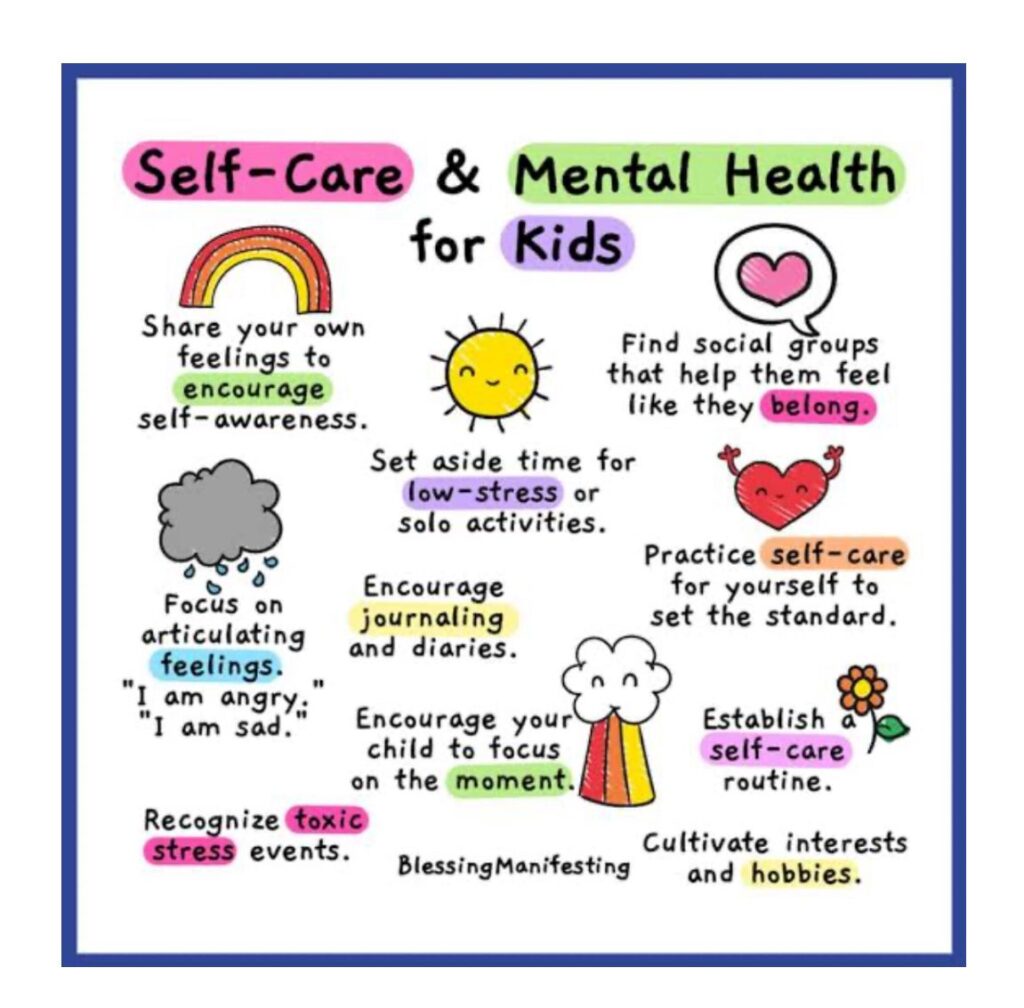Self-care for kids involves activities and practices that help children develop healthy habits, manage stress, and build resilience. Here are some self-care strategies tailored for children:

Physical Self-Care:
- Regular Exercise: Encourage activities like playing outside, sports, dancing, or biking.
- Healthy Eating: Provide balanced meals and snacks, and involve kids in meal planning and preparation.
- Adequate Sleep: Establish a consistent bedtime routine to ensure they get enough rest.
Emotional Self-Care:
- Expression of Feelings: Teach kids to identify and express their emotions through talking, drawing, or writing.
- Relaxation Techniques: Introduce deep breathing exercises, yoga, or guided imagery to help them manage stress.
Mental Self-Care:
- Quiet Time: Provide time for activities that promote mental calm, such as reading or puzzles.
- Limit Screen Time: Encourage breaks from screens to engage in more interactive and creative activities.
Social Self-Care:
- Quality Time with Family: Engage in family activities like game nights, outings, or shared hobbies.
- Healthy Friendships: Encourage playdates and social interactions with peers.
Spiritual Self-Care:
- Mindfulness and Gratitude: Teach simple mindfulness exercises and encourage kids to express gratitude.
- Connection with Nature: Spend time outdoors exploring and appreciating the natural world.
Hygiene and Personal Care:
- Daily Routines: Encourage regular habits like brushing teeth, bathing, and handwashing.
- Dressing Appropriately: Teach kids to dress according to the weather and occasion.
Encouraging Independence:
- Personal Responsibilities: Assign age-appropriate chores and responsibilities to build confidence and self-reliance.
It’s important for parents and caregivers to model self-care behaviors, create a supportive environment, and encourage children to communicate their needs and feelings openly.
Categories:
